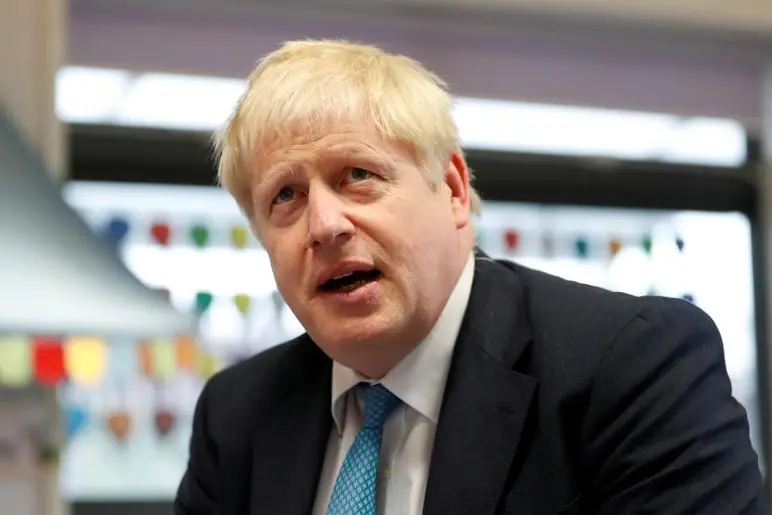PHOTO
LONDON - Markets are showing Boris Johnson the benefits of striking a Brexit deal. The pound bounced and shares in UK-focused companies rose after the British prime minister and his Irish counterpart on Thursday declared they had found a “pathway” out of their standoff. An agreement is far from certain, and UK parliamentary support cannot be taken for granted. But the advantages of avoiding a chaotic departure from the European Union are crystal clear.
When former Prime Minister Theresa May’s previous Brexit deal ran into domestic opposition last year, some predicted plunging markets would force parliamentarians to vote it through. This “TARP scenario” was based on the U.S. House of Representatives, which in 2008 reversed its decision on the Troubled Asset Relief Program to prop up the financial system after the U.S. stock market fell 7%. That analogy was flawed. Though parliament voted against May’s deal three times, investors did not panic because the Brexit deadline was extended.
Johnson now faces an inverse version of this scenario. With less than three weeks to go until that deadline, investors are increasingly nervous that the prime minister will follow through on his threat to take Britain out of the EU without a deal. Even the prospect of another extension beyond Oct. 31 has done little to calm nerves.
That is why markets reacted so positively to the faintest glimmer of progress. The pound rose almost 4% against the U.S. dollar in the 24 hours after Johnson and Leo Varadkar, his Irish opposite number, issued their hopeful statement. Shares in UK-focused lenders such as Royal Bank of Scotland and Lloyds Banking Group soared by more than 10% on Friday.
Johnson and Varadkar offered no details about a possible agreement. But senior EU diplomats told Reuters that the UK had accepted an agreement could not result in the creation of a border in Northern Ireland – a major shift from Johnson’s recent stance.
Even if the EU agrees, the Democratic Unionist Party, on which Johnson’s minority government depends, may not. That would leave the prime minister dependent on votes from the opposition Labour Party. If he fails to win enough backing, the most likely alternative is another extension to the Brexit deadline, followed by an election. Even so, the financial benefits of removing the risk of “no-deal” are clear.
CONTEXT NEWS
- The 27 countries that will stay in the European Union after Britain leaves gave the go-ahead on Oct. 11 for their chief negotiator, Michel Barnier, to hold another round of negotiations in a bid to secure a deal, two senior diplomatic sources told Reuters.
- Barnier and his British counterpart Stephen Barclay had earlier held what both sides called a “constructive” meeting in Brussels. It followed a burst of optimism after the British and Irish prime ministers said they had found a “pathway” to a possible deal.
- “It’s a tunnel with a very small light at the end of it,” one of the diplomats said. The “tunnel”, EU jargon for intense and secret talks, will go through the weekend and possibly as long as Oct. 15, the sources said.
- The diplomatic sources said Barnier disclosed little detail of the latest EU-UK exchanges but that Britain was “more open” to address Irish concerns over arrangements for its border with the British province of Northern Ireland.
- European Council President Donald Tusk said on Oct. 11 he had received “promising signals” from Irish Prime Minister Leo Varadkar that a deal was still possible.
- Sterling was trading at $1.264, up 1.6% on the day, by early afternoon on Oct. 11. The FTSE 250 Index of mid-market stocks was up 3%.
- Shares in UK-focused banks such as Royal Bank of Scotland and Lloyds Banking Group rose sharply.
(Editing by Swaha Pattanaik and Oliver Taslic) ((peter.thal.larsen@thomsonreuters.com; Reuters Messaging: peter.thal.larsen.thomsonreuters.com@reuters.net))





















